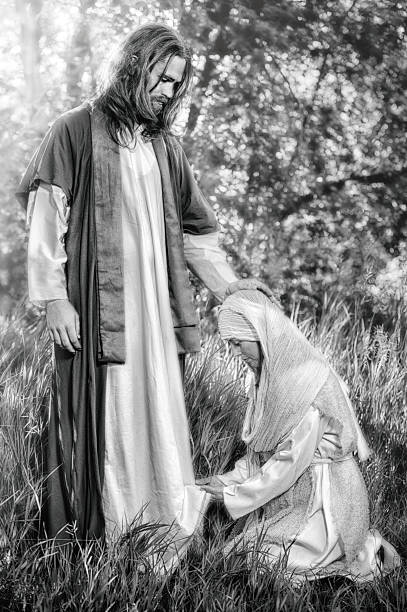The story of Abraham’s servant searching for a wife for Isaac holds an important hidden message for women of all categories.
Recap: Abraham specifically asked his servant to get his son a wife from among his kindred. When the servant got to the place, finding a woman was like finding a needle in a haystack, so he made a prayer; “God let the lady, when I ask her to give me water, oblige and also offer to give my camels to drink.” He had scarcely finished praying, and Rebekah appeared and fit into the whole picture, after which he took her to Isaac to wife.
This is a very thought-provoking scripture that comes with questions. Why make that prayer? Is that request enough? Isn’t the prayer too scanty? Etc.
Before we answer, let us go back to who Abraham and Isaac, his masters, are. Abraham was by far one of the wealthiest men on the planet then. He was so rich that nations feared him. His servants alone could make an army.
He was surrounded by servants, having only one covenant son Isaac. Every other person was practically a stranger, including Hagar and her son. Abraham’s acceptance of these people dates back to his childless days, and they grew under him more as children, so much so that he circumcised them all to engulf them into his covenant. Isaac grew up in his father’s similitude, so his wife must be stranger-friendly. She must be a heart willing to go the extra mile for a suffering stranger.
We can see that the servant’s prayer goes beyond his immediate need at that particular time to his past and possible future at that particular time. Whatever wife he chooses will head him and his fellow servants, so he needs a reliable woman who will care for not only his master but also them, the house’s servants. To give water to a camel is not a piece of cake.
A camel is said to drink 200 liters (53 gallons) of water. The servant had ten camels, and according to the Bible, we are informed that Rebekah kept drawing water until the camels were done drinking. If her pitcher was 25 liters, she probably drew water 80 times. Or maybe she came along with her maid and friends who would have been of help to her.
Any woman who would do this for a stranger would be kind to anything breathing around her. No one suffers around her, not her father-in-law, not her husband, and certainly not the servants and household. And the Bible rightly recorded that she comforted Isaac after the death of his mother.
In modern times many ways of recreating this simple but profound virtue in a woman have arisen. Some of these are: If she can greet anyone without difficulty, she is a good woman, and if she treats her friend nicely but is rude to the waiter, she is not a good woman.
These are all modern-day attempts at reminding us that true virtue most times lies not in the big obvious things we do once in a while but in the little insignificant things we do regularly. It is in those little things that your true nature lies because anyone can be good once in a while, especially if it will bring about recognition or approval. But you will know your true nature if you can be steadily good in those little acts that no one takes note of.
It is said that the first step to becoming successful is to make your bed in the morning. So funny.
If you really want to become a better woman and bring about change in your virtue as a woman, do not focus on the big things, rather start focusing on the little things:
- Greet everyone, especially elders, with sincerity.
- Send a warm smile to those around you.
- Give an act of kindness everyday, no matter how little.
- Cry with someone who is crying, and rejoice with someone who is rejoicing.
- Say a word of prayer for those in need.
- Learn to share what you have, no matter how little.
- Try to be reliable, especially when people confide in you.
- Offer words of encouragement to those struggling.
- Be cheerful and positive in attitude.
- Avoid gossip instead, offer words of advice or correction.
- Let our speech be graceful and kind.
- Be respectful to all. It cost nothing.
I could go on and on, but the whole point is to be mindful and intentional about our little insignificant activities because in them lie our virtues.




